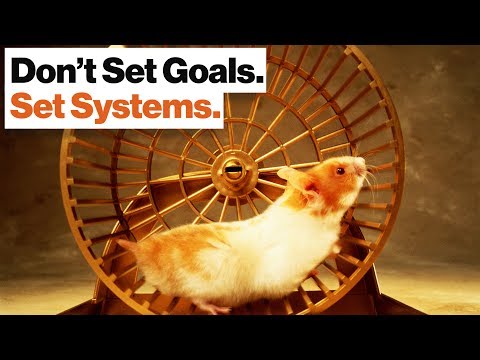Creative Thinking: A How-To Guide
Published on 3 January 2023 in Creativity
Creative thinking is a potential we are all born with. If you don't use that potential, it is probably because you don't know and apply the simple principles for developing it. We can remedy that right now.
<P>The two basic principles of creative thinking are:
<P>1. There are methods and techniques of creative thinking.
<P>2. Making these methods and techniques a part of your mental habits will make creative thinking easy and automatic.
<P>An entrepreneur sees the potential profit in a situation, because his mind is trained for that. A lawyer sees the potential problems, because that is how his mind is trained. How we repeatedly think becomes a habit, and that is how you train a mind. Learn the techniques of creative thinking, use them until they are a habit, and creative thinking will be as natural for you as lying is for a politician.
<P><b>The Techniques Of Creative Thinking</b>
<P>There are dozens of creative problem solving techniques you can learn to use. "Concept-combination," for example, will have you mixing roses and clocks to create the first alarm clock that wakes you up with a gentle release of fragrance. Use the technique of "random-presentation" and a cell phone can give the idea to do your dictation with a pocket tape recorder while you walk, so you'll have time for exercise and still get your work done.
<P>Creative thinking goes beyond just solving specific problems or inventing new things. A truly creative mind is always coming up with the questions too, not just the solutions. To be more creative all the time, focus on three things:
<P>1. Challenge your assumptions. What if a restaurant didn't have employees? Customers could pay a machine as they enter, and feed themselves at a buffet. If everything was as automated as possible, maybe one owner-operator could run a large restaurant alone. Challenge everything. Do you have to go to work? Do pools need water? Is education always a good thing?
<P>2. Change your perspective. Imagining a dog's thoughts about your busyness could clue you in to the unecessary things you do. Thinking dollars-per-day instead of per-hour could give you a plan to let employees go home when they finish a certain quota. Greater efficiency would be almost certain, and you could adjust daily pay and quotas so both you and employees made more money. Look at everything from several perspectives.
<P>3. Let your ideas run wild. Flying furniture seems silly, but it may lead to the idea of a hover-lifter. Slide the device under furniture and it lifts it with a cushion of air, making for easy moving. Don't stifle your creativity. Relax, let ideas come, and know that you can always discard them later.
<P><b>Creating Creative Thinking Habits</b>
<P>To make the above techniques into an automatic part of your thinking, just use them enough. Usually it takes several weeks to develop a habit, so you need a way to remind yourself each day during that time. Try writing a few of your favorite techniques on a card and carrying it with you. Pull it out throughout the day and apply the techniques to anything. Soon, more creative thinking will be a normal part of your life.
<P>The two basic principles of creative thinking are:
<P>1. There are methods and techniques of creative thinking.
<P>2. Making these methods and techniques a part of your mental habits will make creative thinking easy and automatic.
<P>An entrepreneur sees the potential profit in a situation, because his mind is trained for that. A lawyer sees the potential problems, because that is how his mind is trained. How we repeatedly think becomes a habit, and that is how you train a mind. Learn the techniques of creative thinking, use them until they are a habit, and creative thinking will be as natural for you as lying is for a politician.
<P><b>The Techniques Of Creative Thinking</b>
<P>There are dozens of creative problem solving techniques you can learn to use. "Concept-combination," for example, will have you mixing roses and clocks to create the first alarm clock that wakes you up with a gentle release of fragrance. Use the technique of "random-presentation" and a cell phone can give the idea to do your dictation with a pocket tape recorder while you walk, so you'll have time for exercise and still get your work done.
<P>Creative thinking goes beyond just solving specific problems or inventing new things. A truly creative mind is always coming up with the questions too, not just the solutions. To be more creative all the time, focus on three things:
<P>1. Challenge your assumptions. What if a restaurant didn't have employees? Customers could pay a machine as they enter, and feed themselves at a buffet. If everything was as automated as possible, maybe one owner-operator could run a large restaurant alone. Challenge everything. Do you have to go to work? Do pools need water? Is education always a good thing?
<P>2. Change your perspective. Imagining a dog's thoughts about your busyness could clue you in to the unecessary things you do. Thinking dollars-per-day instead of per-hour could give you a plan to let employees go home when they finish a certain quota. Greater efficiency would be almost certain, and you could adjust daily pay and quotas so both you and employees made more money. Look at everything from several perspectives.
<P>3. Let your ideas run wild. Flying furniture seems silly, but it may lead to the idea of a hover-lifter. Slide the device under furniture and it lifts it with a cushion of air, making for easy moving. Don't stifle your creativity. Relax, let ideas come, and know that you can always discard them later.
<P><b>Creating Creative Thinking Habits</b>
<P>To make the above techniques into an automatic part of your thinking, just use them enough. Usually it takes several weeks to develop a habit, so you need a way to remind yourself each day during that time. Try writing a few of your favorite techniques on a card and carrying it with you. Pull it out throughout the day and apply the techniques to anything. Soon, more creative thinking will be a normal part of your life.



